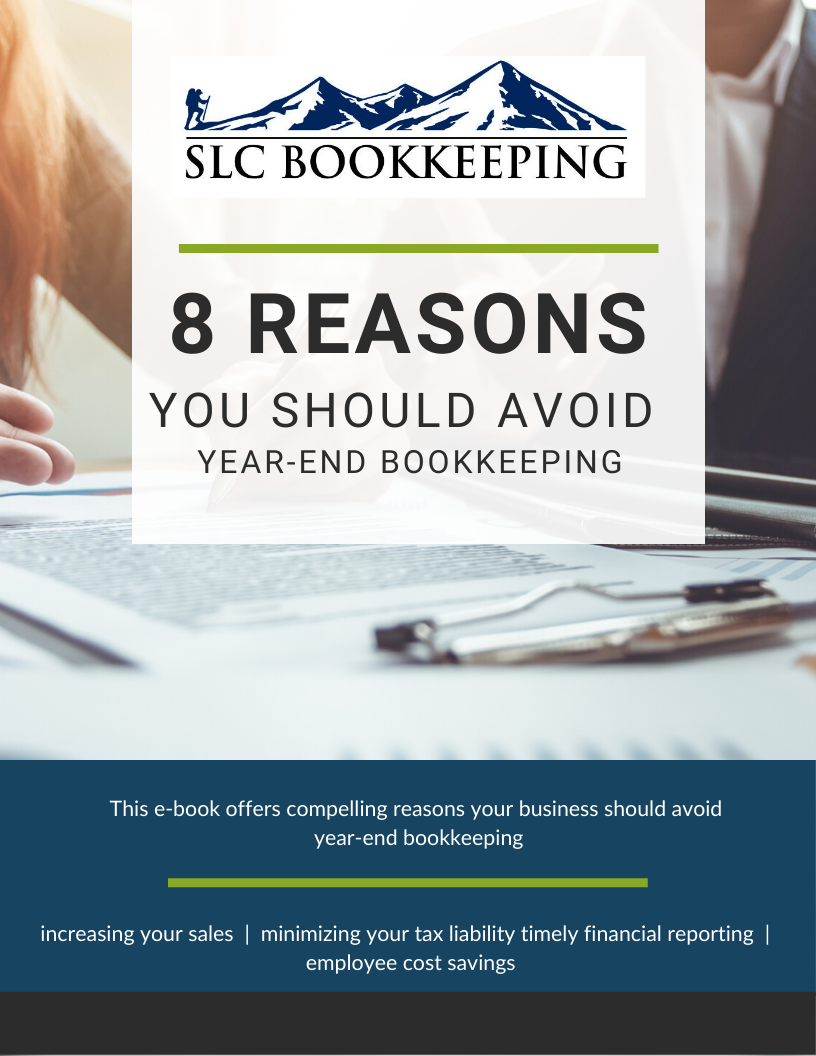With the fourth quarter upon us, now is time to start thinking about year-end. You need to get serious about finalizing your bookkeeping before year-end and getting ready for tax season. I am a firm believer that the phrase year-end bookkeeping should not exist. It is easy for me to say because I run a bookkeeping service. However, if you wait until year-end passes to attend to your bookkeeping then you are doing yourself and your business a disservice. Without updated bookkeeping and accurate financial reporting you are literally running your business blind. Another problem with putting your bookkeeping off until you start a new fiscal year is you can't do much from a tax planning point of view. So before year-end passes make sure to attend to these 5 critical bookkeeping tasks.
Meet With Your CPA For A Tax Consultation Before Year-end
I put this first on my list for a reason; it is by far the most important task. Too many business owners don't take the critical step of meeting with their CPA before year-end; its mind boggling to me. If you are waiting until a new fiscal year to review your estimated tax liability with your CPA you are making a huge mistake. There are several reasons you need to meet with your CPA before the close of each year, but at least two major reasons why I make this recommendation. First, you can't make nearly as many tax advantageous moves after year-end compared to beforehand. Secondly, if you are going to have to pay taxes wouldn't you like to know your approximate tax liability with as much notice as possible?
Make Sure ALL Accounts Are Reconciled
The best thing you could possibly do for your bookkeeping is to make sure you reconcile QuickBooks. It is very important to reconcile all of your accounts not just your bank accounts. Any account that you get a statement for that has a beginning and ending balance should be reconciled. Make sure to reconcile all bank accounts, credit cards, loans, lines of credit and even your payroll liabilities. If you deliver a QuickBooks file to your CPA that has all of your accounts reconciled you have done your business and your CPA a huge favor. If your accounts are reconciled all your CPA has to do is make sure you have put your transactions into the correct accounts. The last thing you want to do is pay CPA rates for bookkeeping work.
Review Ask My Accountant Questions With Bookkeeper And CPA
If you don't use the QuickBooks Ask My Accountant feature then you should. Any questionable transactions that you are not sure how to handle should be put into the QuickBooks account called Ask My Accountant. This does several positive things for your business bookkeeping. First, it organizes all of your questions into one spot making them easy to find and review. It also allows you to move forward with your bookkeeping and reconcile your accounts rather than getting hung up on any questionable transactions. Before you send your QuickBooks file to your CPA for tax preparation make sure that you review any of these questionable transactions with your bookkeeper. If your bookkeeper is unsure of how to handle any of the questionable transactions then bring them to your CPA. Your CPA can then quickly review the transactions with you and get them coded to the proper accounts.
Review All Asset Accounts
I would recommend taking a look through any transactions that were booked to asset accounts throughout the year. One common bookkeeping mistake is to book transactions to asset accounts that don't belong there. Sometimes you may just select the wrong account for a particular transaction. Mistakes can happen from a simple typo or even a slip of the mouse. Quickly scroll through the details of each asset account to look for suspicious transactions that may not belong. Obviously if you see very small charges booked to an asset account you most likely need to code those transactions differently. Check with your CPA for guidelines on a threshold amount that you may want to set for considering purchases as assets. If anything is questionable book it to Ask My Accountant for review with your CPA.
Clean Up Old AR And AP
There is nothing worse than an accounts payable or accounts receivable mess. Quite often we find a lot of inaccuracies in both accounts payable and receivable. Balances in AR or AP are typically due to bookkeeping procedures being handled incorrectly. Neglecting your receivables and payables will cause old items to get left behind and unattended to. This will cause inaccurate balances in both accounts and once they are out of control it can be difficult to bring them current. Keep on top of your AR by regularly running aging reports and sending statements to any customers with overdue balances. Regarding AP make sure to use the enter bills and pay bills functions and be certain that you understand how to properly apply credits.
Year-end is coming but the time to attend to your bookkeeping is now. Waiting until after year-end to update your bookkeeping can be detrimental to your business.
What keeps you from updating your books on a regular basis?




![Your [2021] All-Inclusive End of Year Bookkeeping Checklist](https://60948.fs1.hubspotusercontent-na1.net/hub/60948/hubfs/year-endbookkeepingcaughtyouoffguard_%20hereshowto-streamline-the-process.jpg?length=425&upscale=true&name=year-endbookkeepingcaughtyouoffguard_%20hereshowto-streamline-the-process.jpg)

